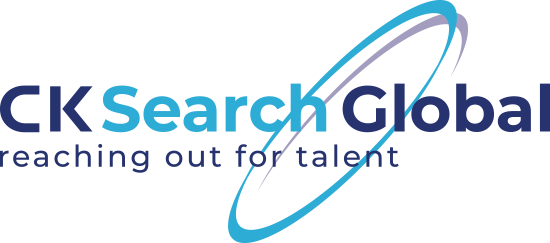Accountants in the UK – and beyond – are reporting increasing difficulties with recruitment and retention of audit professionals, potentially undermining their ability to perform this critical role. The latest survey from the Thomson Reuters Institute warns 58% of audit firms now see attracting skilled professionals as one of their biggest challenges.
In truth, the task of holding organisations to account for their financial accuracy and transparency has never been regarded as a particularly exciting area of the accounting profession. But audit was always regarded as a stepping stone to senior roles in finance, with many chief financial officers (CFOs) having served their time in the sector. Today, however, that concept seems to breaking down. Skills England last year identified finance technicians as one of the 10 most critically in-demand occupations – alongside care workers and logistics, warehousing and transport directors.
Image problem
“Audit has something of an image problem,” says Jamie Lyon, head of skills, sectors and technology at the Association of Chartered Certified Accountants (ACCA). “That is making it much harder to compete for talent, particularly given the range of careers now available to young graduates, many of whom are looking for something different from the world of work.”
High-profile scandals have certainly not helped, with a succession of audit failures at companies ranging from Carillion and Patisserie Valerie to Wirecard resulting in tough headlines from a recruitment perspective. Declining trust in auditors has prompted some departures from the sector, as disenchantment has set in, but also reduced its attractiveness to new joiners.
Changing work patterns
However, the bigger issue, according to Lyon, is that the audit sector has struggled to adjust to changing work patterns. “It’s a pressurised work environment that often requires long hours, making it challenging to maintain your work-life balance,” Lyon points out. “The traditional career pattern, where graduates join with the aspiration to make partner many years into the future, is not a good fit for an employment market where people are now much more likely to want to change career.”
It’s not as if there is much compensation for these limited opportunities for flexible working and a conventional career path that looks out of date, with auditor pay failing to keep pace with remuneration in other fields. Research published recently by the London School of Economics compared average wages of £27,000 to £44,000 in the audit sector to the £37,000 to £64,000 on offer to finance professionals more broadly, and to £47,500 to £77,500 in the technology sector.
Closing the gap
How, then, to close the talent gap? While more competitive rates of pay would undoubtedly help, the key is to think more broadly about the employee value proposition, adds Lyon. “We need to explore what people want from their careers in much greater depth,” he says. “Part of that is working harder to communicate the purpose of audit – the fundamental role of assurance and trust, but also in areas such as sustainability where we believe the profession has a huge role in helping to create businesses that contribute to the longevity of the planet.”
One challenge is to build up people management skills in audit, ensuring that senior people in the profession are equipped to support and develop the staff who work for them. A related imperative is to focus on empowerment – to ensure auditors are given more freedom to work autonomously, relying on their instincts and experience.
Some practical issues will be more difficult to overcome. For example, when auditors are having to travel to client sites, it’s difficult to support more flexible working patterns. But a growing amount of audit work can be conducted remotely.
Similarly, while audit work inevitably involves some repetition of basic tasks, firms that give staff the opportunity to work with a range of clients will expose them to diverse experiences that stimulate continuous learning and skills development.
Working with technology
A related solution to audit’s talent shortage is to make greater use of new technology, including artificial intelligence (AI) and automation tools. Innovation has the potential to reduce the staffing required for audit work, but also to make the job more palatable by reducing repetitive tasks and giving finance professionals experience of working with advanced technologies.
This has already begun to happen. A new study just published by the Financial Reporting Council (FRC) reveals that the UK’s six largest accounting firms – the Big Four plus BDO and Forvis Mazars – are increasingly using AI to perform risk assessments and to secure audit evidence.
“AI tools are now moving beyond experimentation to becoming a reality in certain audit scenarios,” says Mark Babington, the FRC’s executive director of regulatory standards. “When deployed responsibly, they have significant potential to enhance audit quality, support market confidence, drive innovation and ultimately contribute to UK economic growth.”
Common use cases for AI already include summarising board minutes, information extraction from contracts and the elimination of manual processes. Some firms have gone further, using AI to scan data to pick up on transactions that should be of most note to auditors.
Proceed with caution
However, the FRC is also urging firms to proceed with caution. It is concerned, for example, that firms are not monitoring the impact on audit quality of making greater use of new technologies. It has also highlighted the potential for “ethical risk, including the potential for bias”.
Outsourcing could be another way to resolve talent shortages – firms that don’t have enough staff in the UK have the option of contracting some of their work to third parties. Again, this is a growing trend: a study from the Institute of Chartered Accountants in England and Wales (ICAEW) published last year found a notable uptick in outsourcing of more routine audit work by UK companies to contractors in India and other locations.
As with AI, however, outsourcing carries certain risk. Regulators warn that firms must continue to take responsibility for the quality of work outsourced to third parties; that may be more difficult to monitor, particularly when contractors are based in far-flung locations and different time zones.
Global problem
Moreover, the talent shortage in audit is a global one, rather than a UK-specific challenge. Professional services companies worldwide are struggling to recruit – the US alone has 340,000 fewer accountants in practice today than two decades ago. That means competition for outsourcers is likely to increase, pushing up costs.
In the end, argues Lyon, firms have to believe their own staff are worth investing in. He points to research from the Public Company Accounting Oversight Board (PCAOB), the US regulator, which has highlighted the link between audit quality and talent retention. “AI has an exciting role to play but we’re going to remain a people profession,” he says. “It’s the human judgments that make us a profession.”
Writes David Prosser in AccountingWeb

